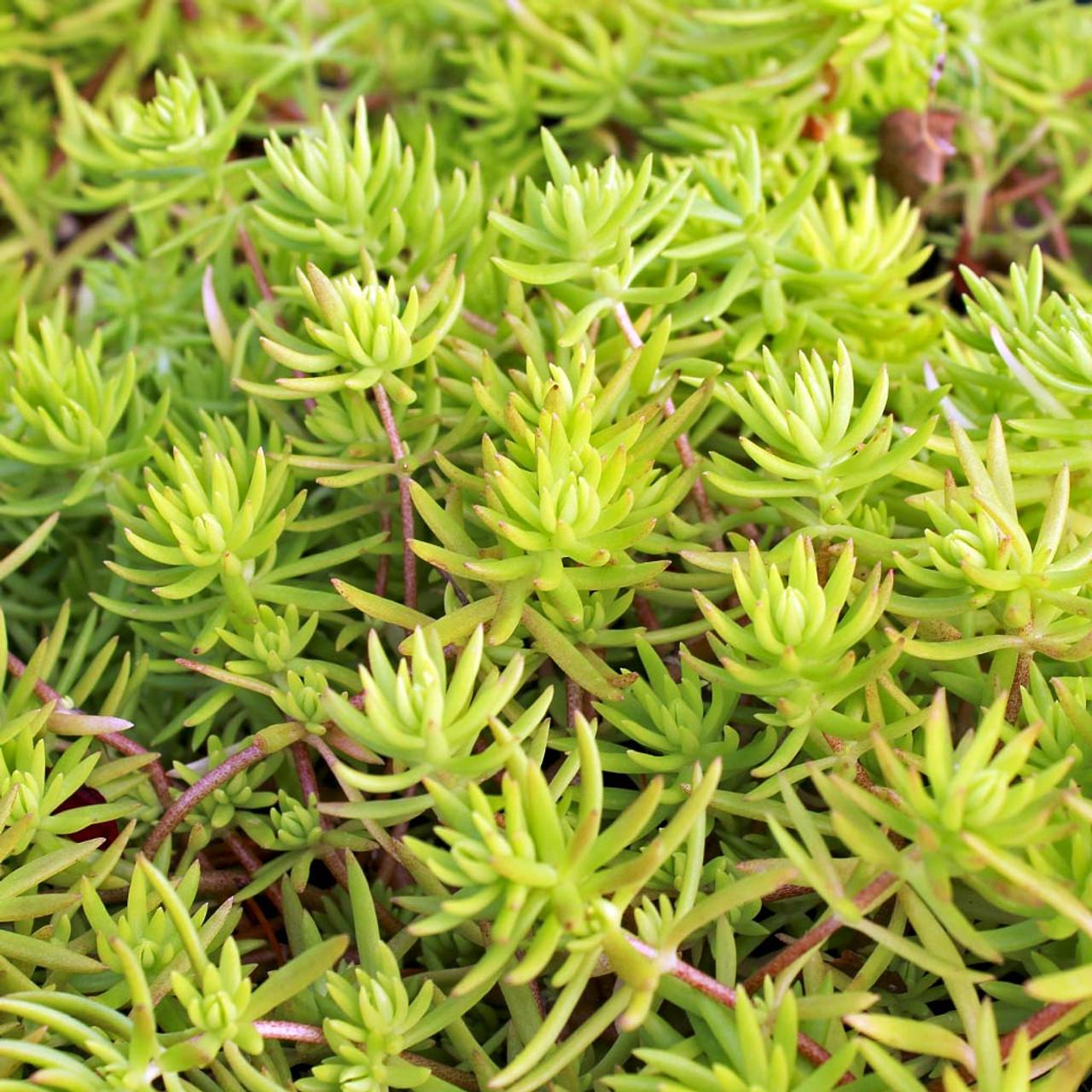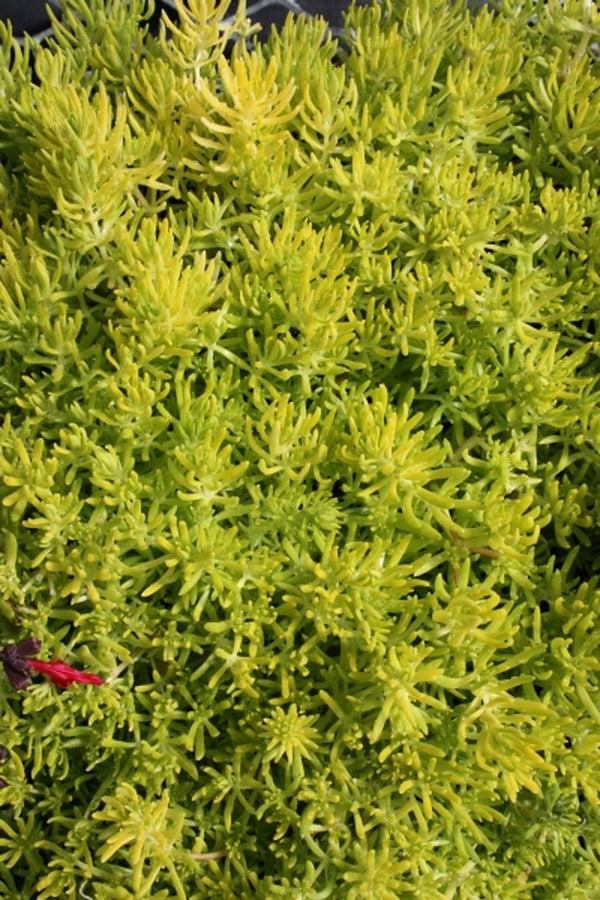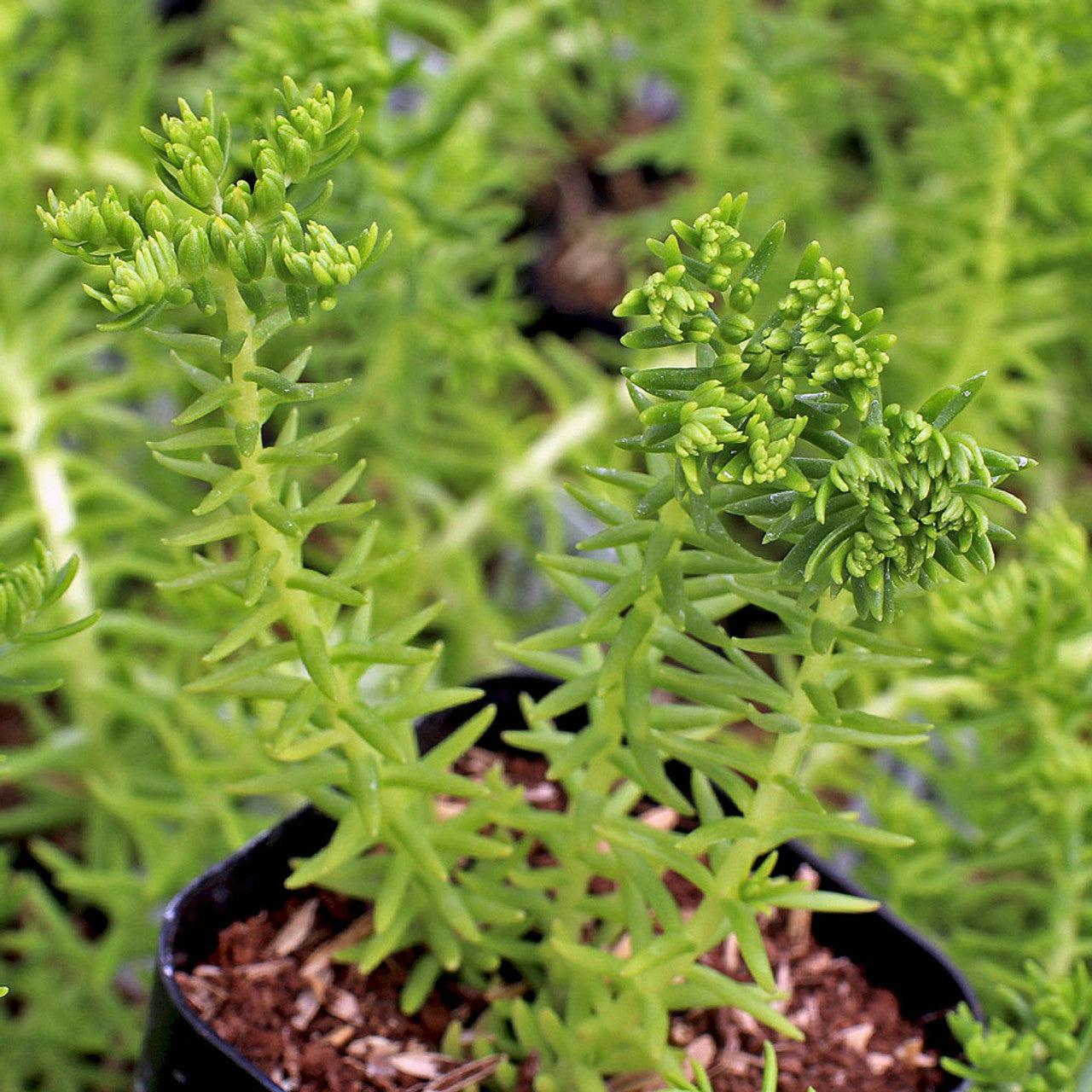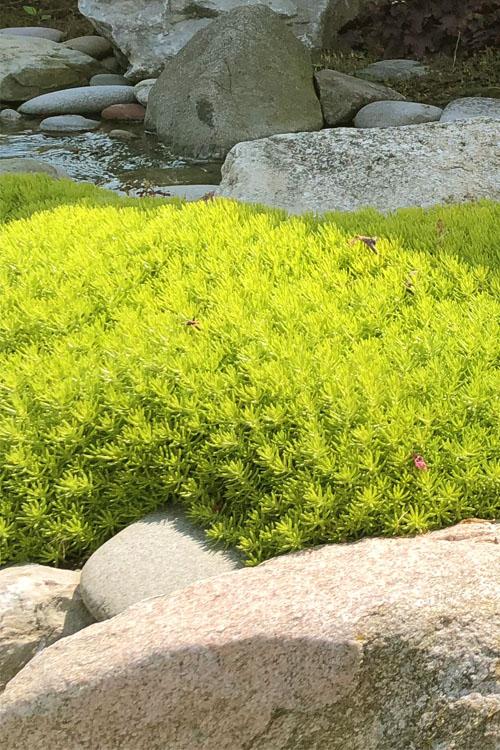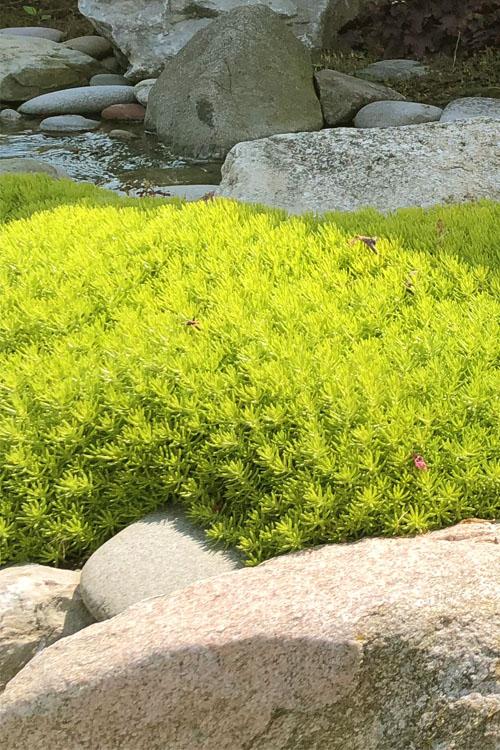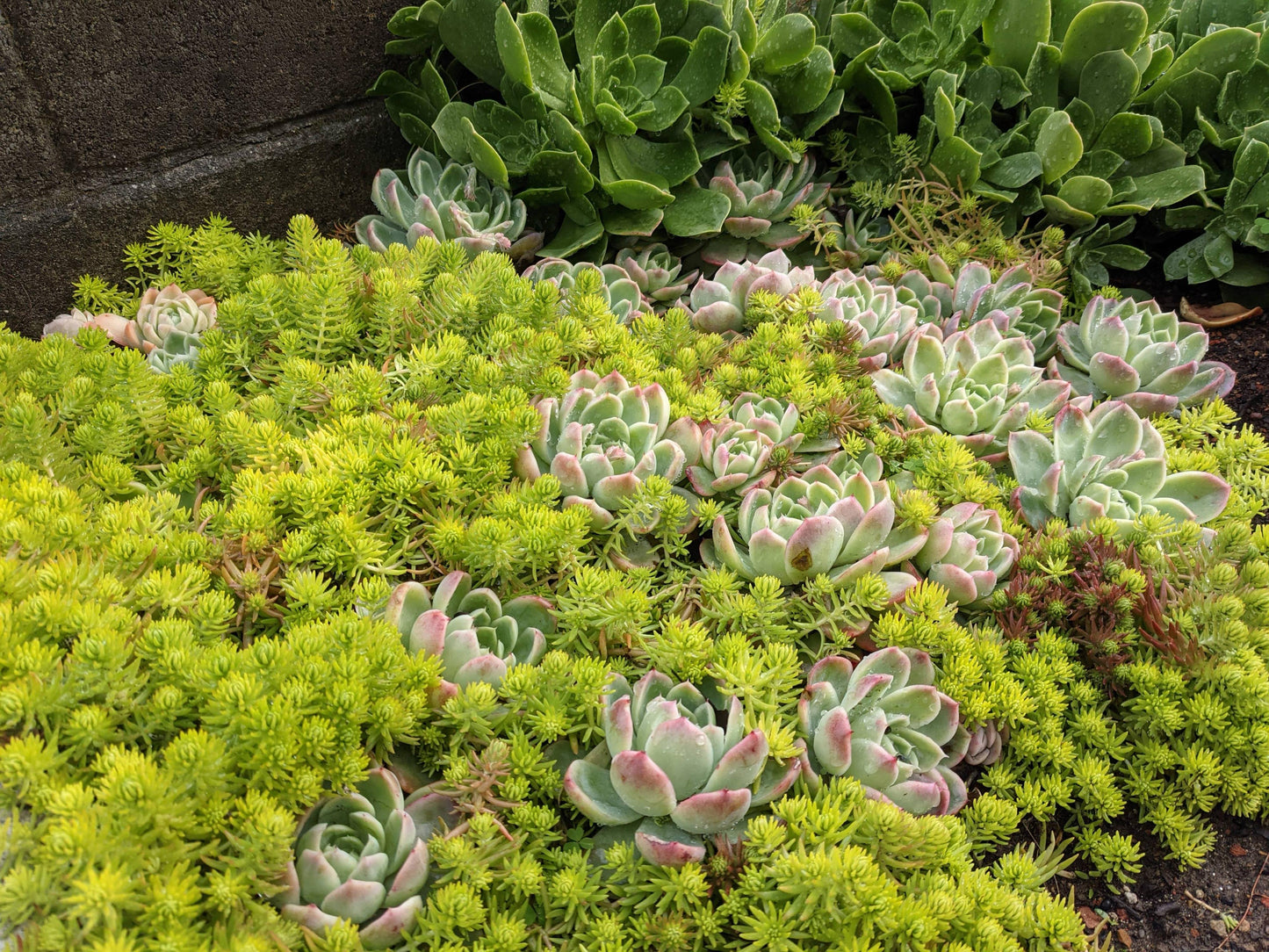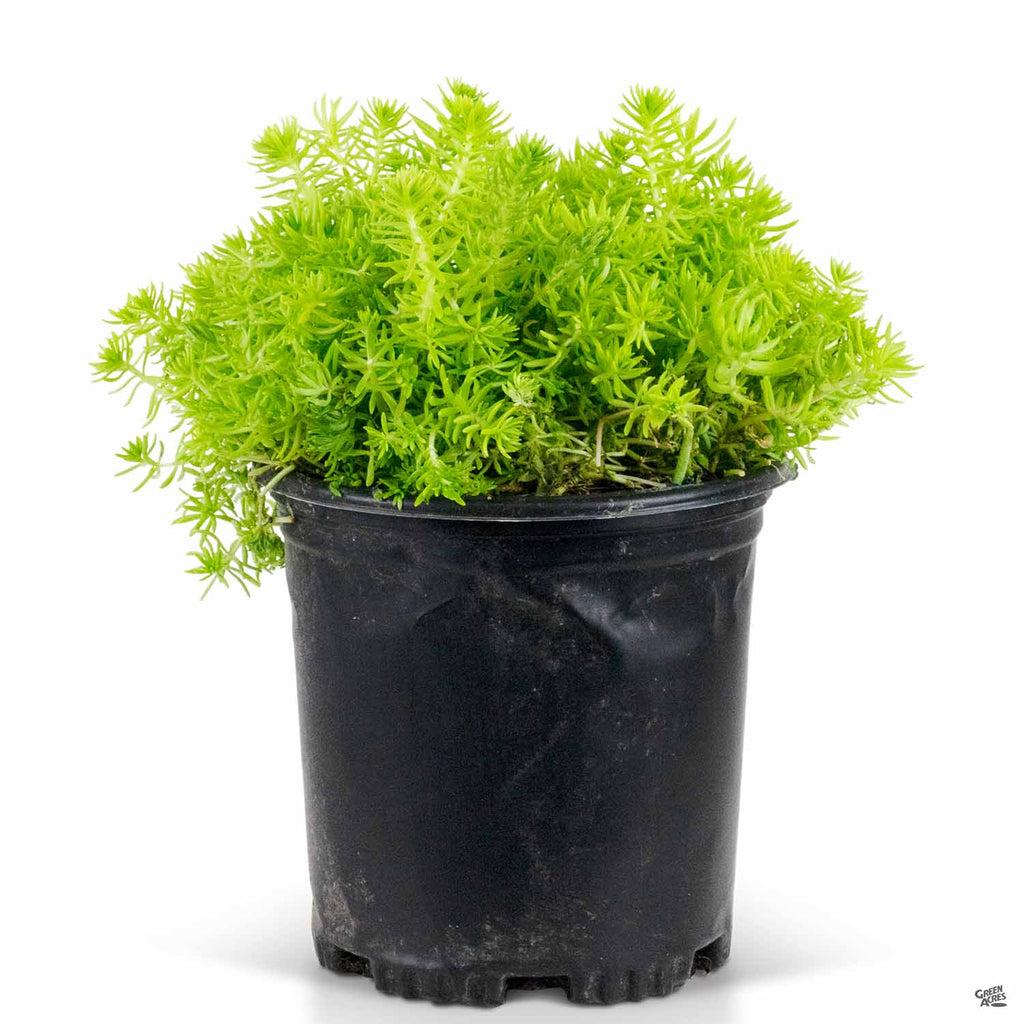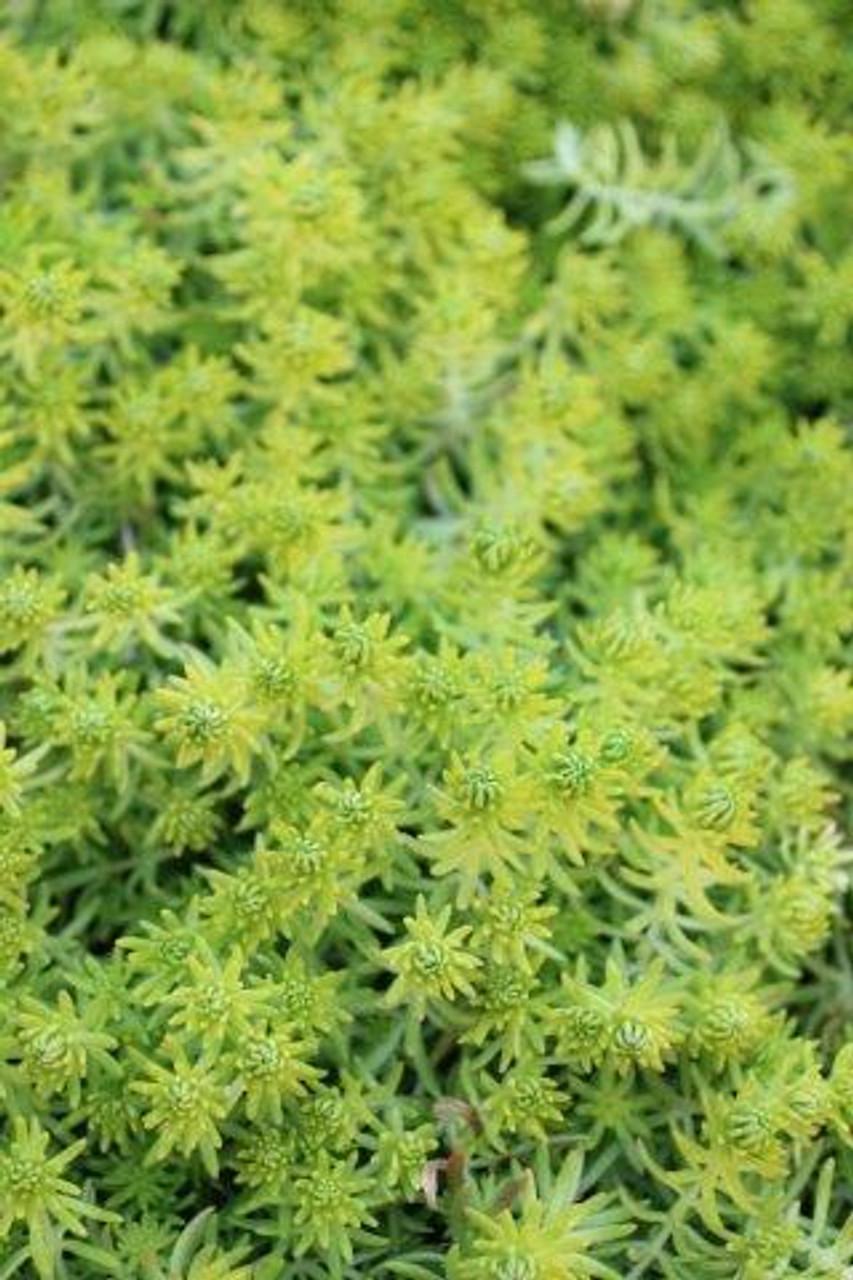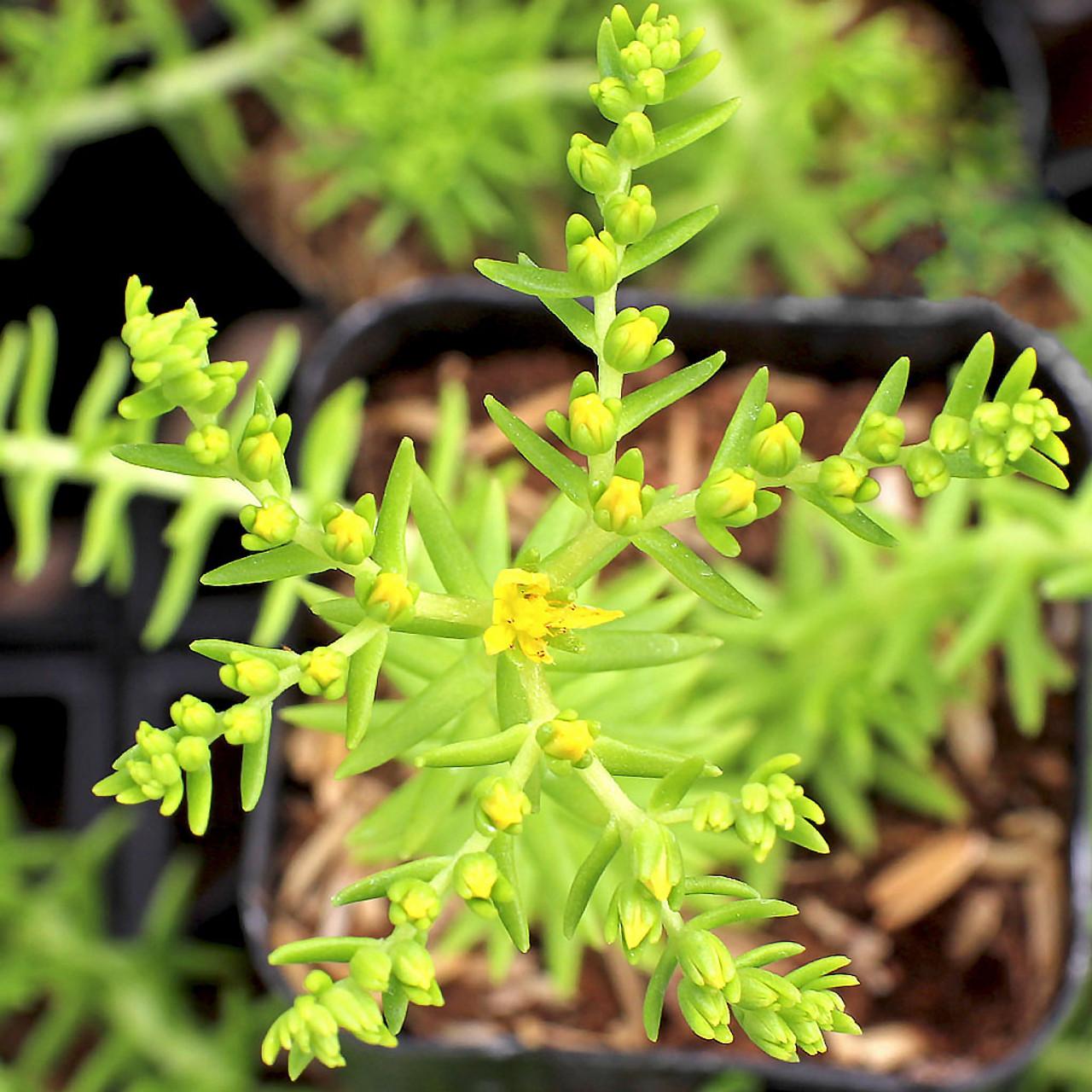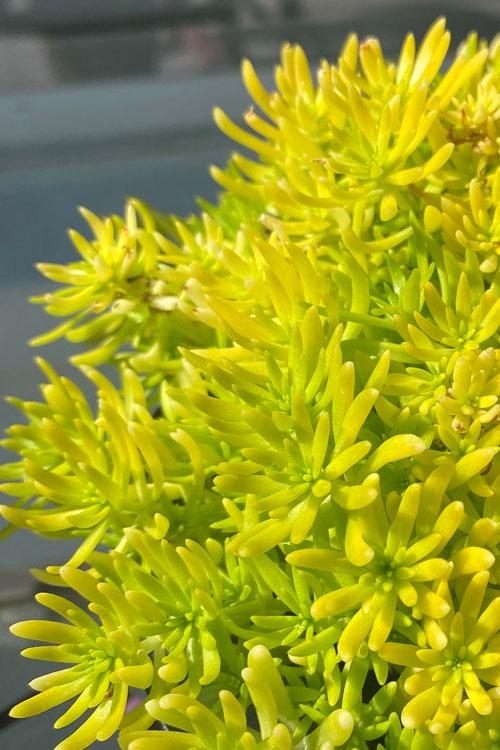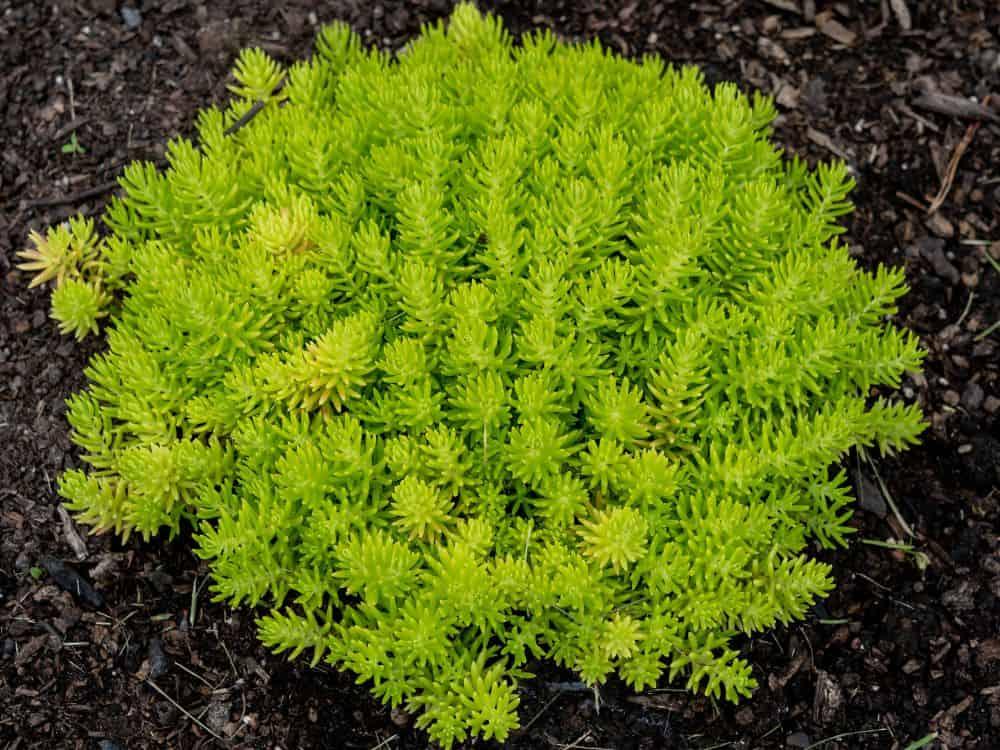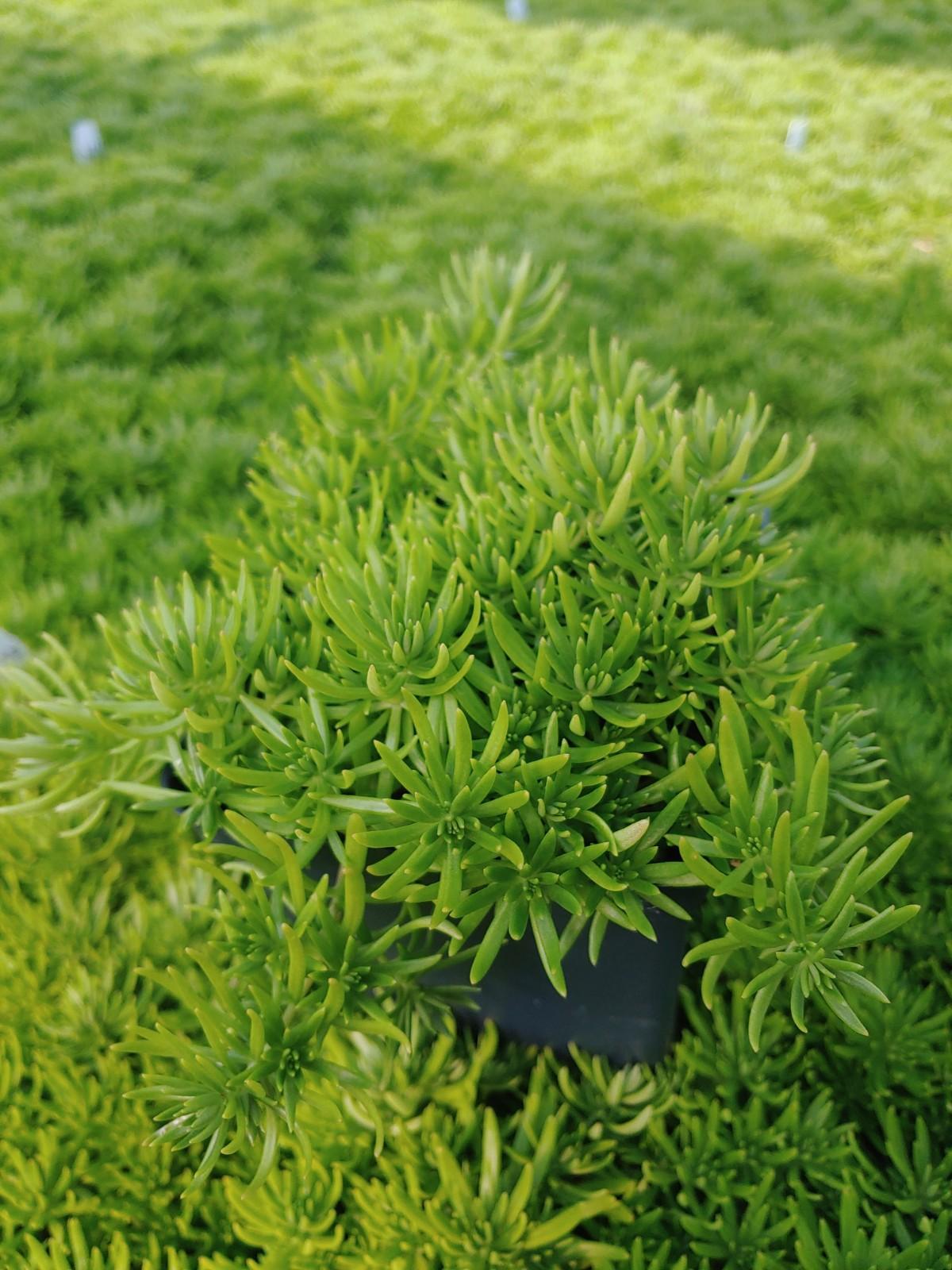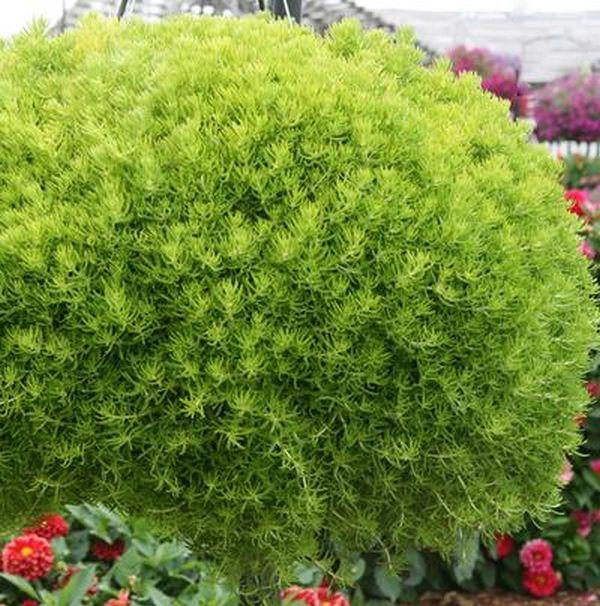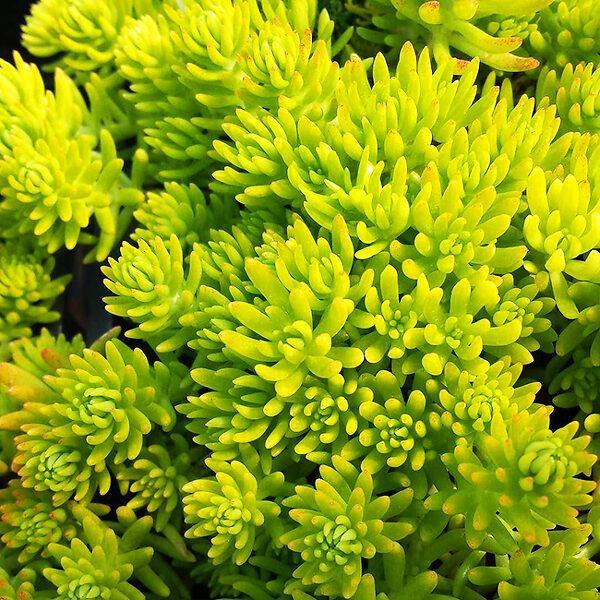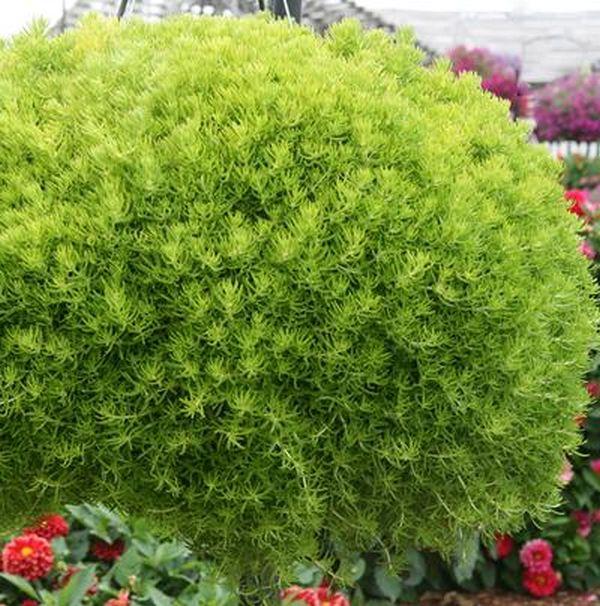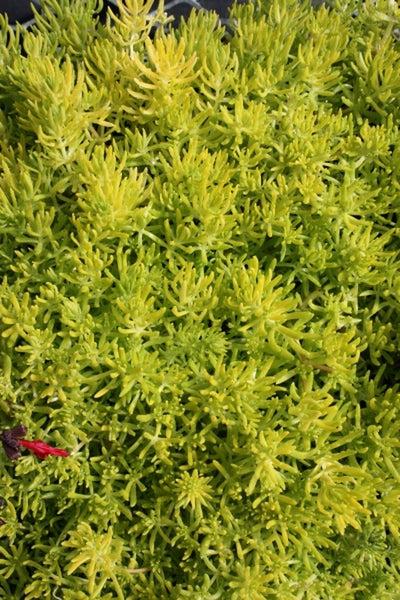Lemon Ball Stonecrop-Sedum mexicanum 'Lemon Ball'-Drought-tolerant succulent 4.5" Pot (Pack of 4)
Lemon Ball Stonecrop-Sedum mexicanum 'Lemon Ball'-Drought-tolerant succulent 4.5" Pot (Pack of 4)
SKU:ac450045-redcrocus
Couldn't load pickup availability
Sedum mexicanum 'Lemon Ball'
Description
Sedum mexicanum 'Lemon Ball', commonly known as Lemon Ball Stonecrop, is a vibrant, low-growing succulent with needle-like, bright chartreuse foliage. It forms a dense mat that adds a splash of color to gardens and containers. This plant is known for its resilience and ability to thrive in various conditions, making it a popular choice for gardeners seeking low-maintenance greenery.
Suggested Uses
Lemon Ball Stonecrop is ideal for rock gardens, borders, ground covers, and container planting. Its bright foliage provides excellent contrast with darker plants and is perfect for adding texture and color to mixed arrangements. It is also suitable for xeriscaping due to its drought tolerance.
Plant Details
-
 Botanical Name: Sedum mexicanum 'Lemon Ball'
Botanical Name: Sedum mexicanum 'Lemon Ball' -
 Common Name: Lemon Ball Stonecrop
Common Name: Lemon Ball Stonecrop -
 Size & Growth: 6-8 inches tall, spreading up to 12-18 inches
Size & Growth: 6-8 inches tall, spreading up to 12-18 inches -
 Hardiness Zones: 7-11
Hardiness Zones: 7-11 -
 Foliage Type: Evergreen, needle-like
Foliage Type: Evergreen, needle-like -
 Bloom Time: Late spring to early summer
Bloom Time: Late spring to early summer -
 Growth Rate: Moderate
Growth Rate: Moderate -
 Light Requirements: Full sun to partial shade
Light Requirements: Full sun to partial shade -
 Attracts Pollinators: Yes, attracts bees and butterflies
Attracts Pollinators: Yes, attracts bees and butterflies -
 Indoor Friendly: Yes, with adequate light
Indoor Friendly: Yes, with adequate light -
 Container Friendly: Yes
Container Friendly: Yes -
 Deer Resistant: Yes
Deer Resistant: Yes -
 Pet Warning: Non-toxic to pets
Pet Warning: Non-toxic to pets -
 Fragrant: No
Fragrant: No -
 Cut Flower: No
Cut Flower: No -
 Grows Well With: Other succulents, ornamental grasses
Grows Well With: Other succulents, ornamental grasses
Care Tips
-
 Planting Instructions: Plant in well-draining soil, spacing plants 12-18 inches apart
Planting Instructions: Plant in well-draining soil, spacing plants 12-18 inches apart -
 Soil Moisture: Allow soil to dry between waterings
Soil Moisture: Allow soil to dry between waterings -
 Soil Type: Sandy, well-draining soil
Soil Type: Sandy, well-draining soil -
 Humidity: Prefers dry conditions
Humidity: Prefers dry conditions -
 Pruning Instructions: Trim back in early spring to encourage new growth
Pruning Instructions: Trim back in early spring to encourage new growth -
 Winter Care: Mulch in colder zones to protect roots
Winter Care: Mulch in colder zones to protect roots -
 Planting Depth: Plant at the same depth as the nursery pot
Planting Depth: Plant at the same depth as the nursery pot -
 Fertilization: Fertilize sparingly in spring with a balanced fertilizer
Fertilization: Fertilize sparingly in spring with a balanced fertilizer -
 Special Care: Avoid overwatering to prevent root rot
Special Care: Avoid overwatering to prevent root rot
Share
